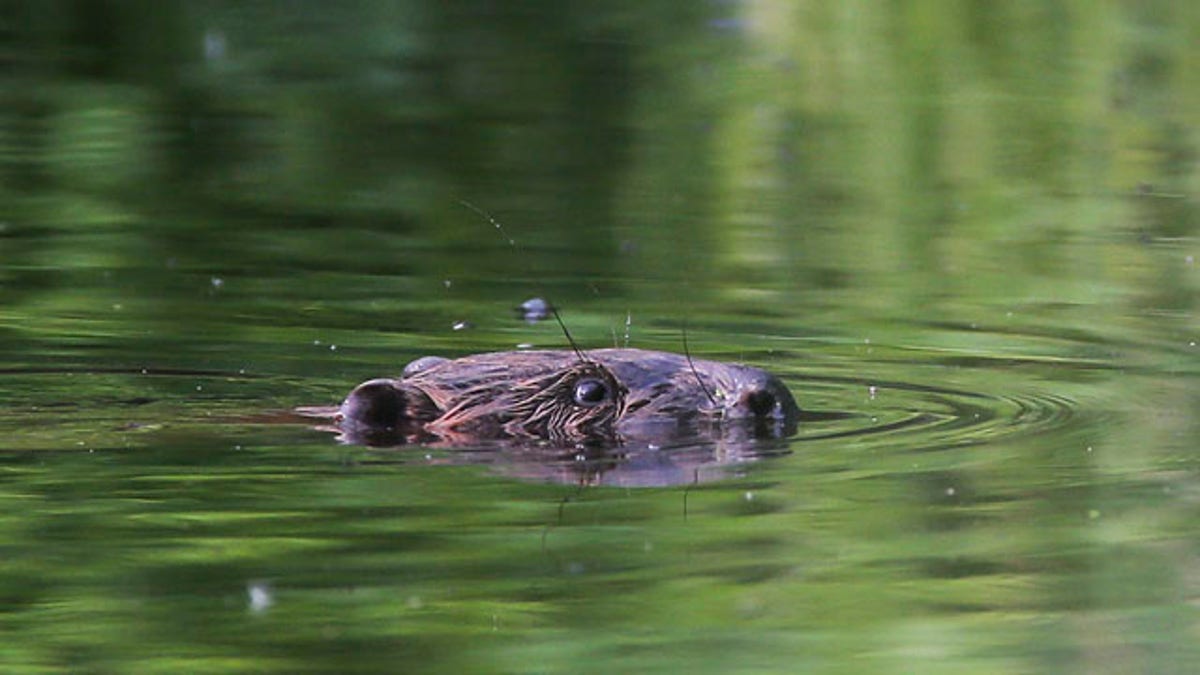
May 26, 2013: A beaver swimming in a pond in the forest near the village of Lovtsevichi. (ap)
The fisherman wanted his photo shot with a beaver. The beaver had other ideas: It attacked the 60-year-old man with razor-sharp teeth, slicing an artery and causing him to bleed to death.
It was the most serious in a string of beaver attacks on humans in Belarus, as the rodents have turned increasingly aggressive when confronted by humans after wandering near homes, shops and schools.
"The character of the wound was totally shocking for us medical professionals," recalled village doctor Leonty Sulim. "We had never run into anything like this before."
Once hunted nearly to extinction in Europe, beavers have made a comeback as hunting was banned or restricted and new populations were introduced. In Belarus, a former Soviet nation between Russia and Poland, the beaver population has tripled in the past decade to an estimated 80,000, according to wildlife experts. That has caused beavers increasingly to wander into populated areas, creating more grounds for conflict.
The Belarusian emergency services said that this year, for the first time, they have received a rash of reports of aggression by beavers, which can weigh up to 30 kilograms (about 65 pounds) and stand about a meter (three feet) high. Officials have responded to some calls by sending out crews to drive away the animals, often by spraying them with water from a fire-hose.
The fisherman, who has not been named at the request of his family, was driving with friends toward the Shestakovskoye lake, west of the capital, Minsk, when he spotted the beaver along the side of the road and stopped the car. As he tried to grab the animal, it bit him several times. One of the bites hit a major artery in the leg, according to Sulim.
The man's friends were unable to stop the blood from spouting, and he was pronounced dead when he arrived at Sulim's clinic in the village of Ostromechevo.
He is the only person known to have died from a beaver attack in Belarus.
Wildlife experts attribute the upsurge in attacks partly to spring bringing about more aggressive behavior in young beavers that are sent away to stake out their own territory. Largely nocturnal, beavers can also become disoriented during the daytime and attack out of fear, according to Viktor Kozlovsky, a wildlife expert.
Kozlovsky said the large beaver population is beginning to cause significant damage to forests and farms. The Forestry Ministry said it was encouraging the hunting of beavers, once prized for their fur and gland secretions, which were used for medicinal purposes. But since they're such easy targets near dams, says ministry spokesman Alexander Kozorez, "beaver hunting holds little sporting interest."
"Hunting them is more like work," he said.








































